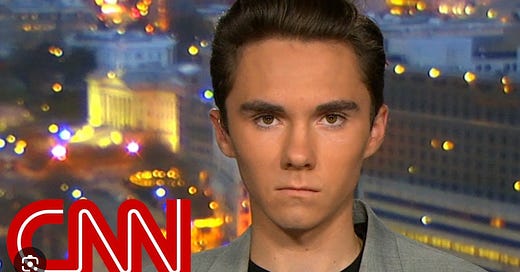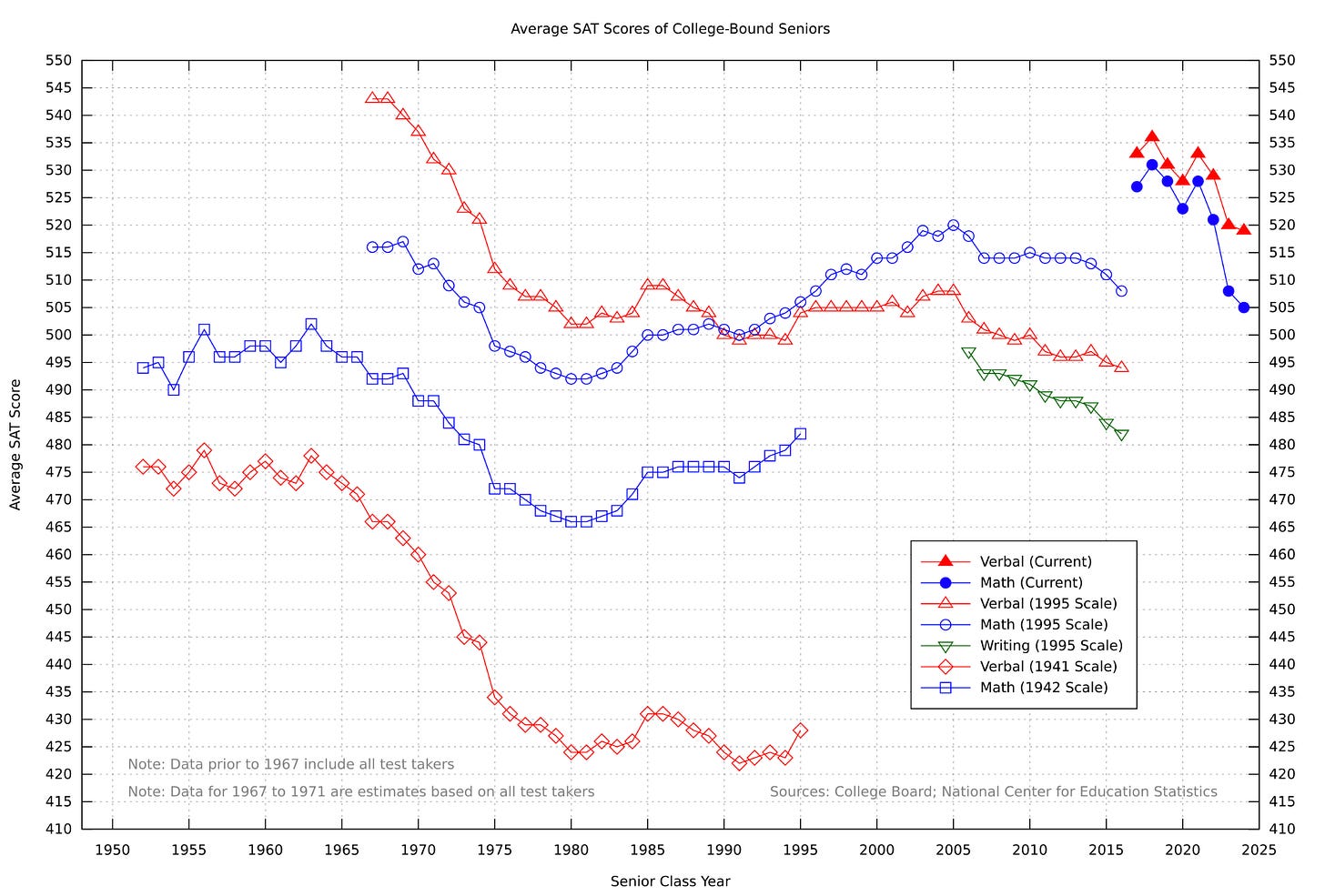The David Hoggization of Harvard
How the College Board inflating SAT scores by ~150 points over the last 30 years gave Harvard more leeway to admit not-so-sharp leftist celebrities and scions.
In response to this morning’s post on SAT/ACT scores, a reader writes:
It is under-appreciated how the SAT recentering of 1995 helped birth the elite undergraduate world of today, with its emphasis on resume-padding activism.
Before scoring on the SAT-Verbal test was made easier in mid-1995, the SAT-Verbal subtest was, in the judgement of anthropologist-geneticist Henry Harpending, the best high-end IQ test in the world.
The SAT had originally been set up so that the verbal and math tests each had a mean of 500 and a standard deviation of 100.
But they’d been normed on the student bodies of Atlantic Seaboard prep schools. Whatever else you might want to say about Choate and Groton, they had high standards for verbal precision.
So, as more and more public school students took the SAT, the mean score for the Quantitative subtest stayed pretty stable. But Verbal scores crashed down into the 420s as more of the unwashed masses with their dubious grammar signed up to take the SAT. From Wikipedia:
SAT Verbal scores were so low before 1995, with the number of perfect 800s being given out annually barely into double figures, that the score was pretty valid out to somewhere between and three four standard deviations above the mean.
In contrast, even before the score inflation of 1995, scoring an 800 on the SAT Math section was a little too common for fine discrimination. I can recall a conversation at Rice U. in the late 1970s, when one STEM major was praising a classmate’s brilliance:
“He’s a pure 800 on Math!”
Somebody replied, “But you got 800 on Math, didn’t you?”
The first responded, “Yeah, but I got a low 800, he got a real 800.” And all the Rice STEM majors nodded their head with comprehension at this distinction.
I arrived at Harvard in 19XX [pre-1995]. The one 1600 in our class was a minor celebrity (and heck, even my 800 verbal as a 15yo was worthy of note). The guy was actually a quite miserable and misanthropic person, interested only in his academic specialty (and he is a professor now, as far as I know). And yet, Harvard had to admit him. With only so many 1600s to go around, if other schools had them and Harvard didn't, that would dent Harvard's precious prestige.
After the 1995 recentering
when about 70 or 80 points were added to SAT Verbal scores and about 20 points to SAT Math scores
, we entered a world where there were more 1600s than slots at Harvard.
The loss of resolution at the top of the scale handed immense power to the admissions committee. Untrammeled by the need to accept visibly superb minds in order to preserve prestige, Harvard could filter instead for "character" or "having had Daddy pay for a trip to Honduras to build wells" or "having founded a non-profit at 16!"
And then in 2017, verbal scores were boosted another 39 or so points and math scores about 18, so current overall SAT scores on a 400 to 1600 scale are now about 150 points inflated over pre-1995.
Paywall here. I consider an example of this effect identified by my correspondent after the paywall.
Keep reading with a 7-day free trial
Subscribe to Steve Sailer to keep reading this post and get 7 days of free access to the full post archives.





